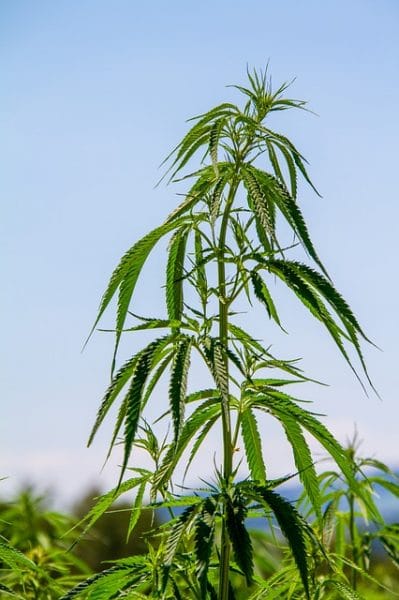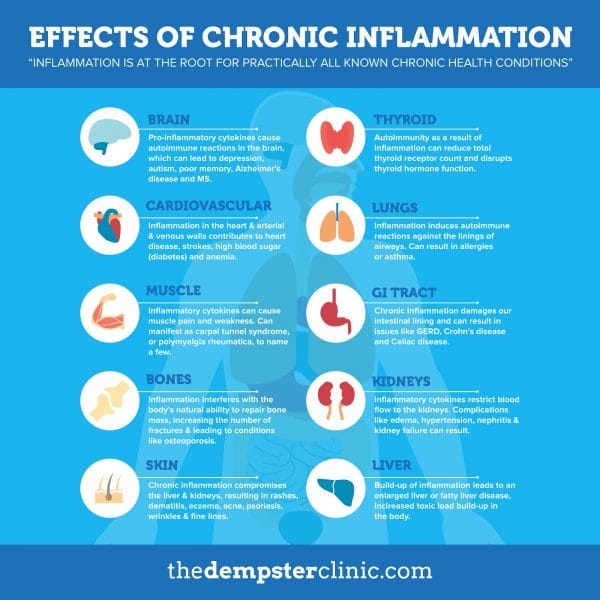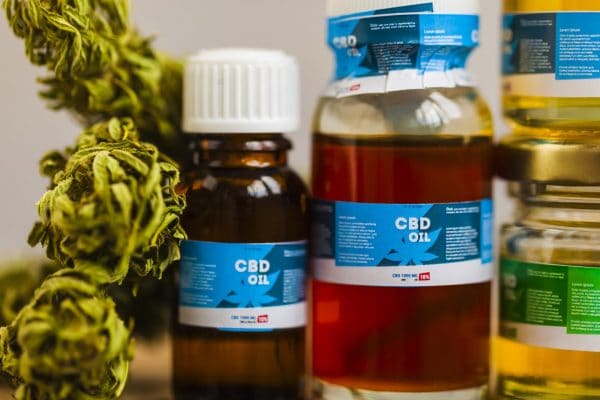You’ve probably heard of CBD (cannabidiol) and its rumoured health benefits. Understandably, many people wonder whether or not CBD is just a fad or if it truly can provide real relief. Furthermore, it can be confusing to learn that CBD comes from hemp. This brings up the common questions concerning the potential of CBD to have psychoactive properties. (While CBD does come from hemp, it does not have the same psychoactive properties associated with marijuana.) In truth, many studies suggest that CBD does indeed have a host of benefits. These range from being an effective anti-anxiety remedy to acting as a painkiller. In this article, I will dig deeper into the biochemical makeup of CBD and explore how it differs from marijuana. I will also discuss various studies that support the efficacy of CBD in treating a myriad of health problems.
CBD VS THC
First, it is helpful to understand that CBD is not THC (tetrahydrocannabinol), which is the main psychoactive ingredient in marijuana. THC is the chemical that gives users a sense of euphoria or “high.” Both CBD and THC are present in marijuana, which belongs to the Cannabis genus.
Hemp refers to varieties of the Cannabis plant family that carry less than 0.3% THC. Hemp is a popular ingredient for a variety of products, ranging from textiles to paper and even to biofuel. CBD may be extracted from both cannabis and hemp plants.
In other words, while CBD is indeed a powerful ingredient in medicinal marijuana, THC is the defining ingredient. On its own, CBD is not responsible for producing a “high” or sense of euphoria.
People ingest CBD in a number of different ways: edibles, rolled joints, vaporizers, and tinctures are a few of the most popular methods. I recommend steering clear of smoking or vaporizing and instead opting for approved cannabis oil tinctures.
While the two substances are very different, CBD and THC do have some similarities. To begin with, they share a similar molecular structure, which consists of the following: two oxygen atoms, twenty-one carbon atoms, and thirty hydrogen atoms. But even though they are composed of the same atoms, the arrangement of the atoms is much different in CBD than it is in THC.

Another commonality is that both CBD and THC are a lot like the endocannabinoids that your body already produces naturally. These are a type of neurotransmitters, or cells within your brain that send messages back and forth. Endocannabinoids are involved in modulating the immune system, pain, sleep, and appetite. THC attaches to the cannabinoid 1 receptors in the brain. In contrast, CBD has a much weaker way of attaching to cannabinoid 1 receptors. It may even diminish the psychoactive effects of THC.
The final component of CBD that I want to discuss before jumping into its health benefits is legality. CBD is legal in Canada under the Cannabis Act, but only from approved dispensaries and through a Licensed Practitioner.
5 MAJOR HEALTH BENEFITS OF CBD
1. Diminishes Symptoms Associated with Cancer
Individuals with cancer often experience serious side effects like pain, vomiting, and nausea. And, while there are existing medications designed to treat these disturbing symptoms, they are not always effective. This can inspire patients to seek relief beyond the more popularized cancer medications. There are a number of studies revealing the power of CBD to diminish cancer symptoms.

One study, published in the Journal of Symptoms and Pain Management, compares the efficacy of both THC and CBD in reducing pain attributed to cancer. This study includes 177 people with cancer-induced pain who did not find relief from traditional pain medications.
In contrast to the group of patients who received THC-only treatment, patients who received both CBD and THC extracts displayed the largest decrease in pain.
There is also evidence that CBD reduces the vomiting and nausea associated with chemotherapy. According to a study published in the British Journal of Clinical Pharmacology, patients treated with CBD and THC extracts experienced a reduction in nausea and vomiting.
Reducing cancer symptoms is always a good thing, but prevention is even better. There are some exciting studies suggesting that CBD may actually help prevent cancer growth. One test-tube study found that CBD caused human breast cancer cells to die. Another study published in the Journal of Molecular Cancer Therapeutics reveals that CBD helped suppress the growth of breast cancer cells in mice. Although actual human studies are needed to definitely conclude that CBD prevents human cancer growth, these are certainly two exciting starting points.
2. Minimizes Anxiety Symptoms

There are a variety of forms of anxiety, ranging from generalized anxiety disorder (GAD) to social anxiety disorder. Unfortunately, many of the popular drugs for treating anxiety lead to long-term dependency and have a high risk for abuse.
But there is good news out there for individuals seeking natural, sustainable forms of anxiety medication! Multiple studies show that CBD reduces the symptoms of anxiety.
For example, consider this 2011 study of CBD’s effects on social anxiety. Participants who ingested CBD prior to a public speaking assignment experienced less anxiety than participants who took a placebo. These individuals experienced an overall sense of diminished anxiety as well as clearer cognition and the ability to deliver their speech with greater ease.
Another study suggests CBD may be an appropriate treatment for post-traumatic stress disorder (PTSD).
3. Provides Natural Pain Relief & Reduces Inflammation
Another benefit of CBD is its proven ability to provide natural pain relief. There are both animal and human studies to support this claim.
According to an article published in the Journal of Pain Research, CBD effectively treats pain a few different ways. First, it influences important endocannabinoid receptors and other neurotransmitters related to pain. It also reduces inflammation. This study encompasses pain due to multiple sclerosis, arthritis, cancer, and neuropathic pain.
There are additional animal studies to support these human studies. One scientific study observing rats concluded that CBD diminished sciatic nerve pain and the associated inflammation. Another study reveals that CBD gave rats relief from the pain that accompanies surgical incisions.
Considering all of the effects of inflammation (as pictured below), I am looking forward to further studies exploring the ways in which CBD’s ability to reduce inflammation can improve health and prevent disease!

4. May Reduce Acne
CBD’s anti-inflammatory properties go beyond pain management. Evidence suggests that CBD is a safe, natural treatment for acne as well! Acne can occur for a number of reasons. Some of the most common causes include excessive sebum production and inflammation. While human studies are necessary for a more final conclusion, the following studies provide strong implications for using CBD to treat acne in the future.
A test-tube study published in the Journal of Clinical Investigation discovered that CBD stopped excessive sebum production. Researchers also observed that it reduced inflammation while inhibiting the expression of specific inflammatory agents known for causing acne.
While the previous study shows that CBD has the potential to prevent acne breakouts, this next study suggests that CBD is a viable option for treating existing acne. This study, published in Experimental Dermatology, suggests that CBD’s anti-inflammatory properties discourage breakouts and help subdue blemishes.
5. May Alleviate Depression
Depression is one of the most common conditions in the world. It can manifest in a more mild form of depression, called dysthymia. On the other end of the spectrum, depression can take a more critical toll in the form of severe major depressive episodes that leave people bedridden and unable to fulfill the requirements of their day-to-day lives.
Modifying your diet, getting adequate sleep, and exercising regularly are the bedrock of any depression treatment plan. People often go straight to antidepressant medications. While these are often effective, they are notorious for a host of negative side effects like weight gain, sexual problems, and lethargy. Because of this, many people decide to seek relief from more natural sources, like St. John’s Wort.

St. John’s Wort has been a popular herbal remedy for ages. But what about CBD? CBD impacts the brain’s serotonin receptors. Serotonin is a neurotransmitter that regulates mood and plays a key role in depression recovery, and most pharmaceutical drugs for depression affect it in some way.
According to a study published in the British Journal of Pharmacology, CBD elicited an antidepressant-like response in mice. Similar studies like this one and this one show promising implications for the use of CBD for depression treatment, but human studies are necessary for a definitive conclusion.
SIDE EFFECTS OF CBD
CBD from a trusted, legal source is generally safe. However, you should always consult your medical practitioner when adding a new treatment to your routine. And CBD is no exception. Side effects from CBD are generally mild but may increase with higher doses.
Here are the most common side effects of CBD:
- Irritability
- Nausea
- Fatigue
- Harmful interactions with blood thinner medications and other prescription drugs
FIND YOUR BEST HEALTH AT THE DEMPSTER CLINIC- CENTER FOR FUNCTIONAL MEDICINE
The discoveries involving CBD and its health benefits definitely have encouraging implications for multiple health issues! However, certain CBD-related claims are in their infancy and further research is needed. Furthermore, CBD affects everyone differently and is best when used under medical supervision. For best results, I recommend a detailed functional medicine analysis followed up with a customised program tailored to your unique biochemical needs. At The Dempster Clinic- Center for Functional Medicine, I can work with you to create the best health plan for you.
Please don’t hesitate to schedule a Complimentary 15-minute Discovery Session with me, which can take place over the phone or at the clinic. It gives you an opportunity to learn more about the services I offer, with no strings attached.
Please schedule an appointment today! Your best health awaits you.
Dr. John Dempster BSc., ND, FAAFM
The Dempster Clinic- Center for Functional Medicine



